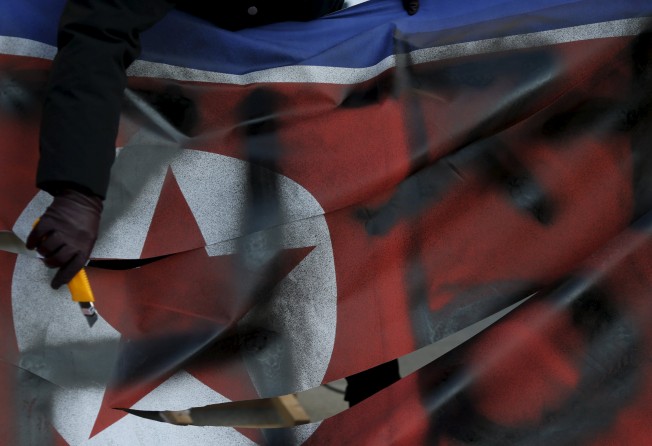‘China doesn’t want to be seen as a paper tiger’: Beijing in a bind over N Korea’s nuke test

Every time North Korea pushes the nuclear button, China feels the heat. And many are watching to see how Beijing will react as its leverage over it neighbour continues to dwindle.
Analysts said Pyongyang’s defiant nuclear test on Wednesday was a reminder of how China’s declining influence over its ideological ally and Beijing’s conflicting geopolitical considerations were limiting its options.
Many now expect China to support more UN Security Council sanctions on North Korea, just as it did after Pyongyang’s three previous nuclear tests. Diplomatic protests and public condemnations have already been made and China might even impose sanctions on its own.
But analysts said that was about all China would do, and the impact would be minimal.
“It doesn’t want to be seen as a paper tiger,” said Seong-Hyon Lee, an assistant professor at the Centre of Asia-Pacific Future Studies for Kyushu University in Japan, referring to China’s likely support for the UN resolution. “But it won’t go so far as to fundamentally harm its interests with North Korea, such as boarding and inspecting a North Korean ship to check for illegal arms.”
Jia Qingguo, associate dean of Peking University’s School of International Studies, said Beijing had a difficult decision in how hard it should push Pyongyang.
Diplomats and analysts have said that China’s economic support – particularly its energy lifelines – had rendered international sanctions ineffective.
Jia said that while China still had the power to “inflict tremendous damage” on North Korea, stopping all aid and supplies could trigger even bigger problems. “There could be a refugee influx, and who is going to control the country’s weapons if a civil war breaks out? And what if Pyongyang decided to sell its nuclear weapons to terrorists?”
Jia said many in China were increasingly aware of the security risks of a nuclear-armed North Korea. Those risks included a nuclear accident and the possible sale of nuclear weapons to Chinese Uygurs, he said.
“That’s why although China will cooperate with other countries to put pressure on North Korea, at the same time it is still trying to persuade Pyongyang to focus on economic development as a better way out,” Jia said.
But that goal appears elusive as communication channels between the countries had broken down since North Korea’s young leader Kim Jong-un took power four years ago, analysts said.
In late 2013, Kim shocked many by executing his uncle Jang Sung-taek, widely seen as a key link with China and an advocate of business cooperation.
“Obviously they don’t have an effective channel on this very important national security matter. The PLA [People’s Liberation Army] and KPA [Korean People’s Army] communication has more or less broken down,” Adam Cathcart, an expert on North Korea at Leeds University, said.
Many in China see the United States and South Korea’s military position as the crux of North Korea’s nuclear problem. “If US President [Barack] Obama would resume talks with North Korea before he left office, the situation would calm down right away,” said Xu Guangyu, a member of the Chinese Military Disarmament Control Council.
Shanghai Academy of Social Sciences researcher Li Kaisheng said China’s influence over North Korea would be largely limited to the economy. “On the nuclear issue, we also have no choice, just like everyone else,” Li said.
But it was exactly the economic imperatives that made it hard for China to walk away from North Korea, said Cathcart.
“The problem is the contradiction in China’s approach on [North Korea] which entails keeping the door open for investment ... in spite of every problem ... that North Korea has thrown up to the Chinese,” he said. “China is playing a long game with North Korea. That’s what the infrastructure programme at the border region is about ... The problem is China ... cannot turn its back on all the work it has done.”